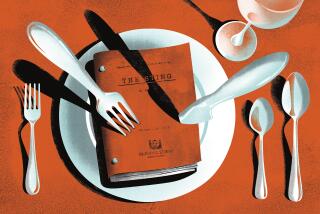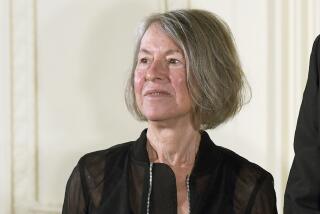A close-up view of New York’s social set
When he died a year ago last month at the age of 92, Louis Auchincloss had amassed an astonishing body of work over more than six decades: nearly 50 novels and story collections and 18 nonfiction books, many written while he was working as a distinguished lawyer. Though often denigrated for concentrating on the claustrophobic world of New York’s Social Register set, in fact he delved deep into a protean world of inherited and self-made wealth, of insiders and interlopers, of icons and iconoclasts. Auchincloss was frequently hailed as a latter-day incarnation of Edith Wharton, but he owed at least as much to the French novelists Flaubert and Proust, who were his lodestars. Amazingly productive to the very end, he has left us the short but complex and intriguing “A Voice From Old New York: A Memoir of My Youth,” which offers glimpses into a forgotten world and even more tantalizing glimpses into the man himself.
Auchincloss can summon up aspects of a New York now long departed — the faux-Italian palazzos and French chateaux that housed the super-rich along block after block of Fifth Avenue and a closed and self-referential hothouse of high society — but he insists on early credentials as an outsider:
“[I]t never occurred to me that we were rich. We lived only as other successful lawyers’ and doctors’ families did. I was quite aware of who the rich were. They inhabited Beaux Arts mansions rather than brownstones and had butlers and sometimes organs in the front hall. One of Father’s uncles had married a Standard Oil heiress. Now she was rich. She had thirty in help.”
Indeed it is Auchincloss’ odd combination of proximity to great wealth and social distinction without quite being inside their magic circle that enabled him to see through it with such devastating precision.
This voice from old New York is a weird mixture of inhibition and withholding on the one hand — only bits of dishing, for instance, about Jacqueline Kennedy Onassis, whose stepfather, Hugh D. Auchincloss, was a cousin of the writer — and startling revelation on the other. Sometimes he will simply say that he is drawing a veil over a subject, at other times he can launch a bombshell, such as recounting that while a student at the boarding school Groton, he was “subject to a sexual violation that would have created a major scandal today” and simply leave it at that. At other times, he can be amazingly revelatory about his and assorted family members’ emotional problems and the psychiatric and other remedies they sought. There are times when the reader wants to shriek “Too Much Information!,” but others when one is left longing for more.
There are useful revelations about Auchincloss’ oeuvre. He tells us definitively that the protagonist of his most famous novel, “The Rector of Justin,” was not, as widely believed, based on Groton’s celebrated headmaster, the Rev. Endicott Peabody, but on the great jurist Learned Hand. There are priceless insider glimpses of those twin peaks of the American foreign policy establishment, the brothers Allen and John Foster Dulles, drawn from his time as an associate at the law firm they headed. And contradictory as always, Auchincloss, a registered Republican, reveals himself to be a liberal critic of the Vietnam War. Reflecting on his prep school roommate William Bundy and his younger brother McGeorge (a closer friend), Auchincloss comes up with this gem about two of “the Best and the Brightest” architects of that conflict:
“Both brothers shared an intense feeling about internecine sport, and I have sometimes wondered if the spirit of ‘Groton must not lose’ did not play a part in their reluctance to face defeat in an unwinnable and unnecessary war.”
Auchincloss has very little to say about his decades-long marriage and three sons here, but there is a female figure who looms large: his formidable mother, Priscilla. He keeps admiringly coming back to her, even as he chronicles her so hobbling his emotional and sexual life that he had to seek psychiatric help, and her interfering in his career as a writer, trying in all manner of ways to stifle it. But even this fondest of sons is capable of revealing the true nature of this towering mother figure while describing her immoderate hatred for a sister-in-law:
“Even when she had to search among the family jewels for an appropriate wedding present for Elsa she manifested a sentiment that could only be called savage. Like a true puritan she selected the most valuable jewel of all, a diamond choker with a huge pin, and said she hoped Elsa would stick it right through her jugular vein!”
Louis Auchincloss has the last laugh on those foolish critics who did not look beyond the surface and dismissed him as genteel. Just when you least expect it, he really can go for the jugular, in all sorts of ways: a perspicacious and probing writer capable of distilling a potent brew.
Rubin is the author of “Sarah Gertrude Millin: A South African Life.”
More to Read
The biggest entertainment stories
Get our big stories about Hollywood, film, television, music, arts, culture and more right in your inbox as soon as they publish.
You may occasionally receive promotional content from the Los Angeles Times.










